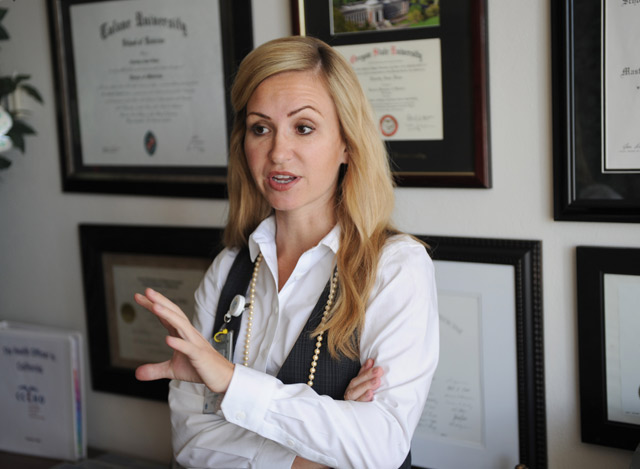
Of the 600 doctors serving Santa Barbara and San Luis Obispo counties, even Dr. Charity Dean — head of the Central Coast Medical Association — is not sure to whom she can refer people who are seeking physician-assisted suicide. “As a medical association, we get people asking for medical referrals all the time,” she said. “We’d like to be able to provide referrals for doctors offering end-of-life treatment under the terms of the new state law regardless of their insurance status.” Outside of the Sansum Clinic, Dean said she knew of only one private provider interested in participating. One big wrinkle is fear of criminal prosecution.
District Attorney Joyce Dudley has jumped in — at the indirect instigation of oncologist Dr. Fred Kass — meeting with some health-care leaders already and setting up a mini summit with heath-care executives later this month. “A lot of questions I can’t answer,” said Dudley, the only DA in California to have endorsed the medically assisted suicide bill passed into law last summer, “but I can tell doctors what would make me file criminal charges.” Under state law, a patient seeking assisted suicide has to ask for it twice but with at least 15 days in between. “If it’s only 14, that’s not criminal,” said Dudley. “But if there’s undue duress placed on an older patient by relatives eager to inherit, that’s another matter.”
Trickier still, the new state law requires that patients be able to self-administer the fatal dose of drugs. But patients who lack the physical ability to swallow the 90 Seconal pills — such as patients with ALS — or the ability to plunge the pills through a food tube are on their own under the terms of the new law. In that instance, if loved ones help, they’re at risk of criminal prosecution for assisted suicide.



